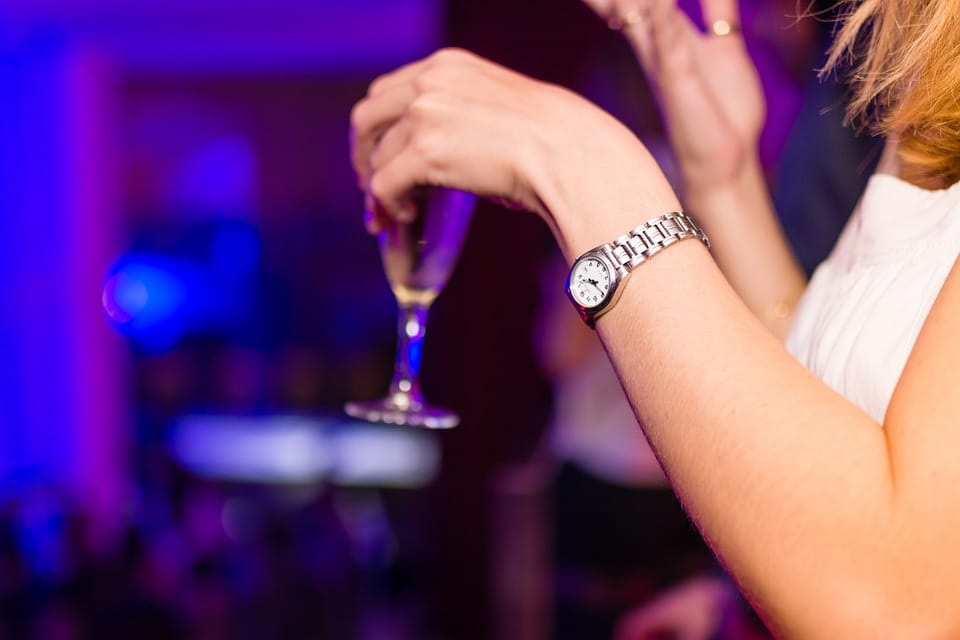If someone suggested you give up drinking, how would you respond?
- No way. I’m no fun when I’m sober.
- I don’t drink that often. I just drink a lot when I do.
- I don’t think I could. It’s my nature.
- It’s not interfering with my life, so why stop?
- It helps me more than it hurts me.
The answer you give says a lot about your personality, but it also gives you clues about your drinking style. Why does that matter? Paying attention to the way you consume alcohol can lead to insights as to why you drink, and that can help you find your way back when you are headed down the wrong road. Here are five common drinking styles and how they tend to play out. Which do you most identify with?
1. The Partier
Without alcohol, life seems boring, and so do you. Those drinks not only add a glow to every activity, they give you permission to cut loose and do all the wild and crazy things you can’t quite work up the nerve to do when you’re sober — because no one can judge you if you’re drunk, right? Depending on alcohol to make you the life of the party is bound to backfire, though. You’ll probably end up too drunk to remember the fun you had, for one thing, and the sad reality is the party can’t go on forever. Recovery for you means learning how to have fun sober — and the good news is there’s plenty out there in the world that can trigger your brain’s pleasure chemicals in healthy ways. You may also need to do some work on social anxiety so that you won’t always feel like you have to have a drink in your hand to have fun or be considered fun by others.
2. The Binger
There’s only one reason to drink, and that’s to get drunk. Why bother otherwise? You can go days or weeks without alcohol, but when you do drink, you make it count. The problem with this drinking style is that it allows you to kid yourself into thinking everything is OK. The truth is that binge drinking can still be alcoholism, even when there are significant gaps between bouts. Not only that, bingeing is the most dangerous type of drinking, making it much more likely you’ll hurt yourself or others. And then there’s the simple fact that alcohol is essentially poison as far as your body is concerned, and a few too many shots too fast can be enough to kill. Recovery for you means coming to terms with the fact that allowing some time between binges won’t protect you from having a problem with alcohol. You may be best served by stopping altogether or you may be able to learn the joys of moderation and experience drinking without the misery of hangovers, blackouts and regret.
3. The Natural
If there’s one thing you can count on in your family, it’s this: When all of you get together, it won’t be long before someone opens a bottle. Saying no to a drink just doesn’t seem to be an option for you or for many of your relatives. Celebrating, commiserating, passing time — no matter the event, the response is to have a drink. Recovery for you means coming to terms with the fact that genes can play a role in the development of drinking problems, and you likely got a bad roll of the genetic dice. But the good news is this: Despite what was once thought, genes are not destiny. An emerging field of scientific discovery called epigenetics makes clear that we have the power to influence how completely certain genes are turned on or off (think of a dimmer switch) by things such as exercise, nutrition, our environment, and even our mindset. That means you have more power than you think to overcome your family history.
4. The High-Functioner
You have proof that your drinking is under control — you keep your commitments, work hard, pay your bills on time, and have never been in legal trouble. You pride yourself on keeping things on an even keel despite what you know is sometimes excessive drinking, and you write off your tendency to turn to alcohol as a well-deserved reward for all your efforts. Recovery for you means recognizing that if you continue to drink, you’ll find it harder and harder to keep up the high-wire act, which will add to your stress, which will add to your drinking, until it all spirals out of control.
5. The Self-Medicator
Drinking for you is a way to feel more normal, not a way to enter an altered state. Here, at last, is something that will turn off your brain for a few blessed moments, numb your distress, and keep bad feelings at bay. You knew with your very first drink that this was the answer, and you were off and running. This type of relief comes at a high price, however. Not only is it temporary, it can cause worse problems than it is attempting to solve. Recovery for you and the road to sobriety means working to understand what’s really prompting your alcohol use — your co-occurring disorder or dual diagnosis, as it is called — and dealing with it, perhaps through therapy, medications, exercise, or a combination of these. You may be dealing with a form of trauma, simple stress, or a mood issue such as anxiety, depression or bipolar disorder, for example. Until you address what’s troubling you along with your alcohol use, each will only continue to feed the other.

